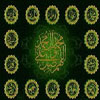
The dimensions of Lady Fatima's (A.S) character are very vast and can only be understood through deep and profound thought and study. Reading and researching about her spirituality, knowledge and political struggles and the other aspects of her life, will help us in reaching our goal.
According to both Shia and Sunni sources, some of her characteristics are as follows:
1- Her contentment to a simple life of small wealth and few facilities, while being able to have the best life possible.
2- Her donation and giving of things that she herself was fond of and liked.
3- Frequent worship and supplication at the peak of pureness in intention.
4- Her modesty and humility.
5- A role model in Islamic hijab and covering.
6- Her vast knowledge; a small example of it being her knowing all of the contents of the "Mus-haf Fatima".
7- Her political and social struggles and efforts in defending Imam Ali's (A.S) successorship to the Prophet (PBUH) after his demise.
Detailed Answer
Many books have been written and many words have been said regarding Lady Fatima's (A.S) high character and spiritual rank, yet if a thousand times more of these books were to be written by man (and his limited intellect), it would only be a drop of the sea of virtues that she truly bears.[1] In this article, we admit to our inability to be able to do so as well, but at the same time will try to do our best because it is much better than nothing.
The smartest intellects of the world are in astonishment of her knowledge, and in order to be able to even get close to it, there is no other choice but to go to the hadiths of the Ahl-ul-Bayt and see what they have to say about it. According to many authentic hadiths that have been narrated from the Imams, Lady Fatima (A.S) is the true essence of Laylatul-Qadr. That is because Laylatul-Qadr is the where the "silent" Qur'an was revealed in, while Lady Fatima (A.S) is where eleven of the "speaking Qur'ans" have been revealed and descended from (meaning that the imams are of her offspring).[2]
Her rank is so high that her anger is the anger of the Prophet (PBUH) and Allah (swt) as has been mentioned in a hadith by the Prophet (PBUH): "Fatima (A.S) is a part of me, whosoever pleases her, has pleased me, and whosoever pleases me, has pleased Allah (swt), and whosoever bothers her has bothered me, and whosoever bothers me has bothered Allah (swt). Also, Fatima (A.S) is the dearest of all people to me."[3] In another hadith, the Prophet of Islam (PBUH) says: "Maryam (A.S) was the master of all of the women of her time, but my daughter Fatima (A.S) is the master of all women of the world from its beginning to its end."[4] He also says: "An angel descended upon me and gave me glad tidings that Fatima (A.S) would be the master of all women of Paradise and the highest of all women."[5] Hence, her superiority to Lady Maryam (A.S) and all other great women such as Asiyeh (the wife of the Pharaoh who was righteous) becomes manifest through these and other similar hadiths. Not only is she higher than women such as Lady Maryam (A.S) and Asiyeh, but they are honored to have served Lady Khadijah (Lady Fatima's (A.S) mother) when she was delivering Lady Fatima (A.S). [6]
As for her virtues and high characteristics, she was content to a simple life of a small wealth and few facilities, while having the potential to be of a very good and well-off one. The proof for that is the fact that her father was a prophet of Allah (swt) and his Excellency owned the valuable if not priceless garden of Fadak that would give a good monthly income to its owner, which he had granted to his beloved daughter. [7] Her husband also had a good income from "the sweat of his brow", therefore she had all the potential needed to live a comfortable and luxurious life. Yet, she would spend all of these incomes and wealth in the way of Allah (swt) through charity and helping the needy, thus living a hard life herself and was content about it.
To be continued
Notes:
[1] Ayatullah Misbah Yazdi, Jami az Zolale Kowsayr, vol. 1, pg. 24.
[2] Ibid, pg. 17.
[3] Sheykh Tusi, Amaliyy, vol. 1, pg. 24.
[4] Biharul-Anwar, vol. 43, hadith 20.
[5] Sheykh Tusi, Amaliyy, vol. 1, pg. 457; Dala'ilul-Imamah, pg. 8; Ghayatul-Maram, pg. 177; Biharul-Anwar, vol. 43, pg. 2.
[6] Ibid.
[7] Al-Kafi, vol.1, pg. 538, chapter of fey' wal-anfal wa tafsirul-khums wa hududihi wa ma yajeb fih.
source : www.tebyan.net













